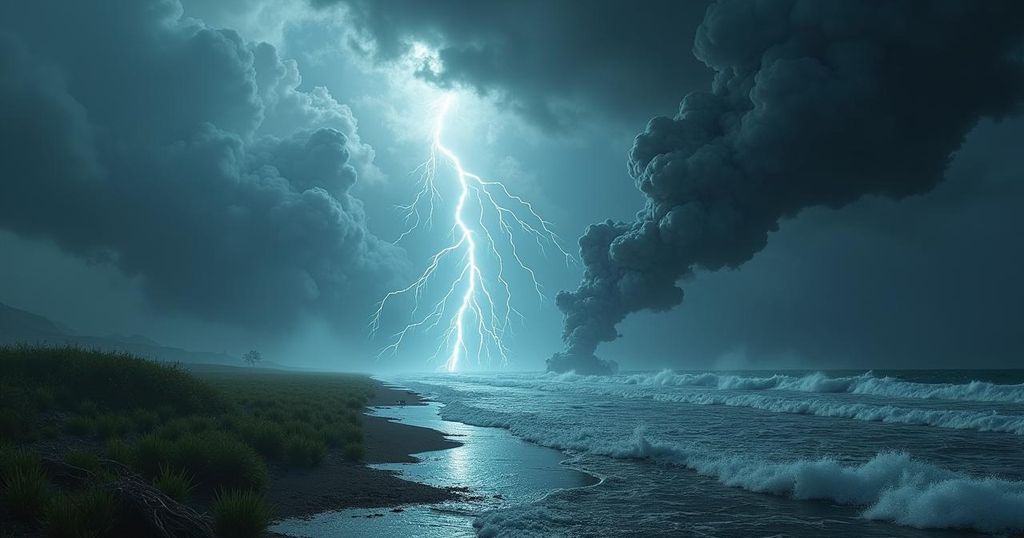Climate Change: A Critical National Security Challenge

The devastation from Hurricanes Milton and Helene has starkly illustrated that climate change poses a more immediate threat to American security than traditional external adversaries. The Pentagon categorizes climate change as an existential crisis, prompting a reconsideration of national security that includes not only military threats but also environmental and health crises such as pandemics. Evaluating and redefining the parameters of national security in light of recent events is essential for the protection of American citizens. Policymakers must take action to mitigate risks associated with climate change and pandemics, ensuring a broader understanding of security that aligns with contemporary challenges.
The recent devastation wrought by Hurricanes Milton and Helene has starkly highlighted the indeed severe and immediate threat that climate change poses to the safety and well-being of American citizens. In the aftermath of Hurricane Milton, which severely impacted parts of Florida, climate experts are in clear agreement that the severity of such storms is exacerbated by the rising temperatures in the oceans attributed to climate change. Similarly, Hurricane Helene’s inland destruction, particularly in Asheville, North Carolina, where it is estimated that at least 232 lives were lost, underscores the pervasive nature of climate threats, even in areas previously thought to be insulated from severe climate impacts. The characterization of climate change as a national security concern is not merely an ideology reserved for progressive thinkers, but rather a pragmatic assessment endorsed by military leadership. In fact, the Pentagon has acknowledged climate change’s status on the list of pressing threats to the United States. US Secretary of Defense Lloyd Austin, three years ago, articulated this sentiment powerfully: “We face all kinds of threats in our line of work, but few of them truly deserve to be called existential. The climate crisis does.” Moreover, pivotal military installations such as those located in Norfolk and Virginia Beach are increasingly at risk from rising sea levels driven by climate change, prompting the Pentagon to initiate strategies aimed at counteracting such dangers. The issue extends beyond the borders of the United States; it has global implications, resulting in a surge of climate-induced migration, which exacerbates tensions in conflict zones like Sudan. Historically, the notion of national security has evolved. President Franklin D. Roosevelt presented a more expansive view of national security that included securing the basic livelihoods of citizens, which was epitomized by the introduction of Social Security in 1935. This perspective was underpinned by his vision, articulated during his 1941 State of the Union address, that national security encompassed “freedom from want.” However, the Cold War dynamics shifted this understanding towards a more restrictive view centered around defense against external adversaries. This narrowed premise continued post-9/11, as articulated in the George W. Bush administration’s 2002 national security strategy that emphasized fighting terrorism as a primary focus. In light of recent calamities, it is increasingly vital to expand the definition of national security to include not only climate change but also potential pandemic threats, exemplified by the staggering losses incurred during the COVID-19 pandemic, which claimed around 1.2 million American lives, equating to the military casualties experienced in all conflicts since the American Revolution. This alarming reality compels urgent action among policymakers to fortify national strategies against foreseeable threats, such as implementing restrictions on construction in areas prone to flooding to mitigate future disaster risks. In the wake of Hurricane Milton and the ensuing chaos, Americans must critically reflect on their current safety from climate change and pandemics, prompting a necessary dialogue on redefining national security in alignment with contemporary existential threats.
The article discusses the urgent need to recognize climate change as a significant national security threat, supported by recent hurricanes that have exposed vulnerabilities in American society. It argues that the ramifications of climate change, such as increased storm intensity and resultant human tragedies, worldwide migration due to climate-induced crises, and the inadequacies in preparedness for pandemics, necessitate a re-evaluation of what constitutes national security. Historical perspectives on national security, particularly those articulated during Roosevelt’s presidency, provide context for understanding how contemporary crises should be addressed. The piece accounts for the shifts in national security discourse, particularly following significant global events like the Cold War and the 9/11 attacks, leading to a more combat-oriented perspective rather than one focused on holistic security for citizens. Critical references to statements from military leaders and historical interpretations by scholars underscore the pressing need for a paradigm shift in national security policy formulation in light of the evolving landscape of threats.
In summary, the emergence of hurricanes Milton and Helene as major natural disasters exemplifies the detrimental effects of climate change, positioning it as a critical national security issue. This recognition is reinforced by statements from military officials who categorize climate change as an existential threat. Expanding the national security framework to encompass the diverse and grave risks presented by climatic instability and global health crises is crucial for safeguarding American lives and ensuring a comprehensive understanding of security in the 21st century. Attention to these issues is imperative for effective policy and planning to mitigate future threats, thereby ensuring a secure future for all citizens.
Original Source: amp.cnn.com






